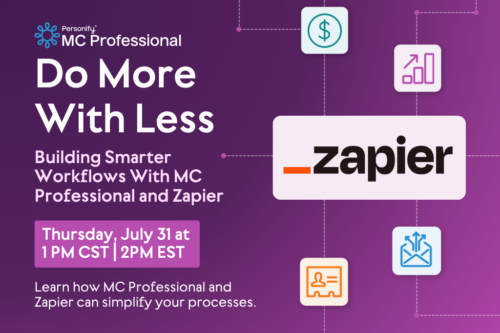With March Madness in full swing, it starts to make you think: How can you stand apart from the crowd? It’s a jungle out there, and you need to compete to make sure you (AND your nonprofit) stay ahead of the pack. What better way than to take a quick look at how you can leverage your professional skill sets!
When it comes to work experience, it’s traditional to split up these proficiencies into two categories: hard skills and soft skills. A hard skill is typically defined as technical knowledge that is teachable and easy to measure, such as computer programing or accounting. A soft skill, often known as “people skills,” comes down to how you deal with personal interactions, such as clear communication or time management. Today, we’re going to focus on some of the key skills you should have in your soft skills “toolbox.” Check them out below!
Patience
It’s human nature to think that we can always do it harder, better, faster, stronger than everyone else. But let’s stop and take a second to think: Is everyone really hanging on your every word? Will the world be different based off what you are about to say at that exact moment?
The honest reality is probably not. Now, that’s not saying your opinion won’t provide a lot of great value to those around you and make a strong impact! However, this is a friendly reminder that sometimes your thoughts don’t always have to come first. No matter your industry, being an active listener will take you far. By having the patience to stop and take a second to wait for your turn to interject, you’ll provide a response with a much bigger impact.
Accountability
No one likes a sore loser, especially when it comes to failing at something and then not accepting responsibility. Being an accountable person will get you far in your industry, as it takes guts to own an action as well as accept the good and bad that comes with it! So, what does that entail? Check out these easy ways:
- Be on time – whether it’s in person or with a project!
- Don’t make excuses – just admit the facts.
- Manage expectations – don’t preach what you can’t practice.
- Don’t expect a reward for every deed – enjoy the act of doing a job well done.
By following these basic methods, you’ll be seen and remembered as a professional who respects their colleagues. And the best part is that any of these positive behaviors will also be attributed into your nonprofit! Who doesn’t love some good (and free!) PR?
A Sense of Direction
Have you ever worked with someone who was all over the place, and the very idea of doing a project together almost immediately made you go into panic mode? It’s short and simple: Don’t be that disorganized person! Having a strong sense of direction in your work will help streamline both new and old processes as well as create a steady sense of calm over your nonprofit.
You can start establishing this focus by doing a couple of quick mental reviews and asking yourself “What are my work priorities?” We recommend starting off by breaking these bigger projects into smaller tasks on a fairly regular basis: Be thinking in daily, weekly, monthly, quarterly, and yearly segments. While it may seem like a lot to think about at first, your future self will thank you for clearly outlining these initiatives. You can even set a time on your calendar to review these projects weekly to make sure that your direction is still on point. Believe us, your coworkers will thank you for it!
Still trying to figure out how you’re going to take these skills and put them to good use at your nonprofit? We’ve got you! Check out our guide, The Ultimate Guide to Membership Management, to see how you can become the best at recruiting, engaging, and retaining members for your nonprofit!















